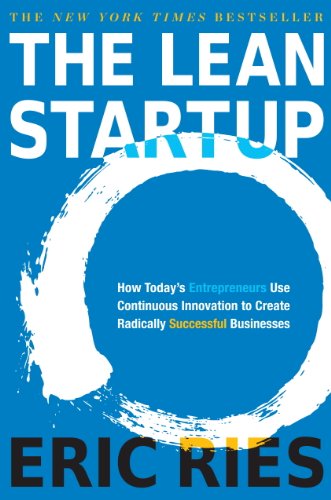

This article is an excerpt from the Shortform summary of "The Lean Startup" by Eric Ries. Shortform has the world's best summaries of books you should be reading.
Like this article? Sign up for a free trial here .
You’ve heard about startups building new products and services to change the world. But what, exactly, is a startup? And who are startup founders? Learn the proper definition of startup here – it’s not what you might think.
Definition of Startup
Startups don’t have to be companies made by 20-year-old college dropouts. Entrepreneurs aren’t just startup founders working out of apartments. They can also be general managers in large companies charged with creating new ventures or new product lines.
The Lean Startup is a set of methods for building a successful startup. Eric Ries defines a startup as “a human institution designed to create a new product or service under conditions of extreme uncertainty.”
The definition of startup is purposefully broad – it can apply to a non-profit, a government agency, a big company or a small company. The key piece of this definition that makes a startup unique is the condition of “extreme uncertainty.”
When startups are in situations of uncertainty, traditional management tools – like forecasts, business plans, and milestones – break down. There’s too much that’s unknown about the world to predict with high accuracy what’s going to work.
Startup Example: The Snaptax Story
In 2009, a startup wanted to automate W-2 form processing to streamline individual taxes. Their early users had problems had difficulty scanning in their tax forms, so instead the startup decided to switch to cell phone cameras as a way to capture W-2 forms. But the customers asked for something even more ambitious – could they complete their entire tax return on the phone?
This was a tall order. Tax forms can get super complex and annoying to deal with.
Instead of building a complete product and shipping a giant package, the startup decided to release a barebones version. It only processed the simple 1040EZ tax return, and it only worked for California. It was barebones in features, but enough to prove that people wanted the app. It launched as SnapTax in 2011 to great success.
So who was behind the startup SnapTax? Surprise! It was an internal project at Intuit, a giant public company that makes finance tools like Quicken and Turbotax.
(Where is Snaptax now? It’s been integrated into the main TurboTax mobile app.)
A Seven-Thousand-Person Lean Startup
What is a startup? It can be created within billion dollar companies like Intuit.
Intuit was founded by Scott Cook in 1983, and they dominated the finance and tax prep software industries. But by 2002, its product initiatives were failing. Cook realized the management practices at Intuit couldn’t keep up with the rapidly changing economy.
Intuit was founded by Scott Cook in 1983, and they dominated the finance and tax prep software industries. But by 2002, its product initiatives were failing. Cook realized the management practices at Intuit couldn’t keep up with the rapidly changing economy.
A decade later, Intuit has built startups, entrepreneurship, and risk taking into the backbone of their company. For example, TurboTax, one of their flagship products, used to run on an annual product improvement cycle, where product and marketing teams would package together the year’s changes and push it out in a single big release.
Nowadays, they move in a much more agile way like a startup – they’ll run up to 70 different tests in one week, examine the data the next week, and quickly decide what further tests they need to run. Furthermore, because they rely on data to make decisions, good ideas win, rather than politics. This has led to much faster growth of new product lines.
Eric’s major point is The Lean Startup is that innovation can happen anywhere, not just in college dorm rooms but also in large, experienced organizations. The definition of startup really depends on what you’re doing, not who you are and where you are. But if you’re the latter type, it’s up to the leadership to create the conditions that will stimulate entrepreneurship and experimentation.
Question: Do you consider yourself entrepreneurial – “creating a new product or service under conditions of extreme uncertainty?” Why or why not?
———End of Preview———

Like what you just read? Read the rest of the world's best summary of "The Lean Startup" at Shortform . Learn the book's critical concepts in 20 minutes or less .
Here's what you'll find in our full The Lean Startup summary :
- How to create a winning Minimum Viable Product
- How to understand how your startup will grow
- The critical metrics you need to track to make sure your startup is thriving






